Scientific Information/Data
The amino acid (AA) formula that comprises XymobolX™ (Lemon) was meticulously developed and studied by internationally recognized researchers in the fields of muscle metabolism and aging and longevity. Seventeen years of research have resulted in this particular blend of the nine essential amino acids (EAAs)— including the branched-chain amino acids leucine, isoleucine, and valine—plus arginine, proportioned in the most optimal ratios for muscle anabolism.[1-22] XymobolX™ (Lemon) is designed for both young and elderly individuals who are seeking to stimulate muscle protein synthesis, hasten muscle recovery, and promote muscle strength and function.*
*These statements have not been evaluated by the Food and Drug Administration. This product is not intended to diagnose, treat, cure, or prevent any disease.
Quality Not Quantity Amino acids are potent stimulators of muscle protein synthesis in both the young and the elderly. Of the AAs, data indicate that EAAs are primarily responsible for this biological process.[9] Moreover, studies demonstrate that there is no additional benefit to muscle protein synthesis from adding nonessential AAs to an EAA supplement.[21] For instance, the addition of 22 g of non-essential AAs to 18 g of EAAs produced no additional benefit to net muscle balance when compared to the provision of 18 g of EAAs alone.[21] Likewise, a 15 g EAA supplement—with the nine EAAs in similar ratios to XymobolX™ (Lemon)—had twice the impact on muscle protein synthesis than that of an equal amount (15 g) of a high-quality protein.*[14]
Why Include Arginine? In healthy young adults, sufficient arginine can be synthesized to meet normal demands. However, during rapid growth or in response to stress, there are heightened needs for arginine that may not be fully met. Furthermore, there is evidence that arginine has a unique stimulatory effect on muscle protein synthesis. While all mechanisms have not been fully elucidated and are likely multifactorial, it is known that arginine converts to nitric oxide, which relaxes blood vessels and improves blood flow to muscles. Last, arginine availability influences its own catabolism and that of other amino acids by controlling ureagenesis. A critical finding that solidified the need to add arginine to the EAA formulation was that without it, plasma arginine decreases; therefore, the rate of protein synthesis is potentially reduced.*[17]
Essential Amino Acids and Exercise The effectiveness of EAA intake is amplified by ingestion before exercise because of the increased delivery of amino acids to the muscles.[6,21] In fact, results from acute studies have shown that exercise and EAA intake have additive effects on muscle protein synthesis.[17] Furthermore, branchedchain AAs (BCAAs), have been demonstrated to hasten post-exercise muscle recovery. Data show that BCAA (e.g., leucine) supplementation before and after exercise helps decrease exercise-induced muscle damage, promotes muscle protein synthesis, and modulates exercise-related cytokine production.[23,24] For example, leucine-enriched EAA supplementation (total EAA was 10 g of which 1.85 g were leucine) prolonged the anabolic response and the sensitivity of skeletal muscle to AAs.[25] Børsheim et al propose that over time, exercise will increase the beneficial effects of EAA supplementation on lean body mass and strength and improve functional parameters of muscles.*[17]
Muscle Loss with Aging Beginning in the fourth decade of life, there is a natural and gradual decline in muscle mass (catabolism), strength, and function as a result of the innate metabolic changes and the more sedentary lifestyle that accompany aging. Studies using EAA supplementation at doses of 6.7 to 45 g/d in advanced age, bed rest, and recovery from surgery have demonstrated important benefits. These benefits include stimulation of muscle protein synthesis, enhancements in muscle strength, and improvements in functional parameters of the studied muscle(s).*[11,14,15,17,20,22]
In the Elderly Protein supplements are often used to help ward off muscle-related losses in the elderly. According to Ferrando et al, “Increasing protein intake to 1.4 g/kg/d in the elderly with EAA supplementation indicates the potential for preserving muscle function.”[20] Because non-essential AAs are not as effective as EAAs for muscle anabolism, supplements containing significant calories in the form of non-essential AAs may be inadequate to maximize anabolic efficiency in the elderly.[9] Furthermore, the elderly tend to use protein supplements as calorie substitutes and reduce their food intake.[9,20] In these cases, it becomes critical that the AA supplement be low- calorie, so as not to influence satiety, and highly efficient to confer maximum benefits to skeletal muscle.[20] A high proportion of leucine is another factor that is required for optimal stimulation of muscle protein synthesis in the elderly.[15] Additionally, there is evidence that the presence of carbohydrates in a nutritional supplement for the elderly is not beneficial and may actually impair muscle anabolism.[9,17] XymobolX™ (Lemon) is a highly efficient blend of EAAs plus arginine that provides zero carbohydrates.*
References
1. Biolo G, Fleming RY, Maggi SP, et al. Transmembrane transport and intracellular kinetics of amino acids in human skeletal muscle. Am J Physiol. 1995 Jan;268(1 Pt 1):E75- 84. [PMID: 7840186]
2. Volpi E, Ferrando AA, Yeckel CW, et al. Exogenous amino acids stimulate net muscle protein synthesis in the elderly. J Clin Invest. 1998 May 1;101(9):2000-07. [PMID: 9576765]
3. Tipton KD, Gurkin BE, Matin S, et al. Nonessential amino acids are not necessary to stimulate net muscle protein synthesis in healthy volunteers. J Nutr Biochem. 1999 Feb;10(2):89-95. [PMID: 15539275]
4. Volpi E, Mittendorfer B, Wolf SE, et al. Oral amino acids stimulate muscle protein anabolism in the elderly despite higher first-pass splanchnic extraction. Am J Physiol. 1999 Sep;277(3 Pt 1):E513-20. [PMID: 10484364]
5. Volpi E, Sheffield-Moore M, Rasmussen BB, et al. Basal muscle amino acid kinetics and protein synthesis in healthy young and older men. JAMA. 2001 Sep 12;286(10):1206- 12. [PMID: 11559266]
6. Tipton KD, Rasmussen BB, Miller SL, et al. Timing of amino acid-carbohydrate ingestion alters anabolic response of muscle to resistance exercise. Am J Physiol Endocrinol Metab. 2001 Aug;281(2):E197-206. [PMID: 11440894]
7. Børsheim E, Tipton KD, Wolf SE, et al. Essential amino acids and muscle protein recovery from resistance exercise. Am J Physiol Endocrinol Metab. 2002 Oct;283(4):E648-57. [PMID: 12217881]
8. Tipton KD, Børsheim E, Wolf SE, et al. Acute response of net muscle protein balance reflects 24-h balance after exercise and amino acid ingestion. Am J Physiol Endocrinol Metab. 2003 Jan;284(1):E76-89. [PMID: 12388164]
9. Volpi E, Kobayashi H, Sheffield-Moore M, et al. Essential amino acids are primarily responsible for the amino acid stimulation of muscle protein anabolism in healthy elderly adults. Am J Clin Nutr. 2003 Aug;78(2):250-58. [PMID: 12885705]
10. Paddon-Jones D, Sheffield-Moore M, Katsanos CS, et al. Differential stimulation of muscle protein synthesis in elderly humans following isocaloric ingestion of amino acids or whey protein. Exp Gerontol. 2006 Feb;41(2):215-59. [PMID: 16310330]
11. Paddon-Jones D, Sheffield-Moore M, Zhang XJ, et al. Amino acid ingestion improves muscle protein synthesis in the young and elderly. Am J Physiol Endocrinol Metab. 2004 Mar;286(3):E321-28. [PMID: 14583440]
12. Børsheim E, Aarsland A, Wolfe RR. Effect of an amino acid, protein, and carbohydrate mixture on net muscle protein balance after resistance exercise. Int J Sport Nutr Exerc Metab. 2004 Jun;14(3):255-71. [PMID: 15256687]
13. Katsanos CS, Kobayashi H, Sheffield-Moore M, et al. Aging is associated with diminished accretion of muscle proteins after the ingestion of a small bolus of essential amino acids. Am J Clin Nutr. 2005 Nov;82(5):1065-73. [PMID: 16280440]
14. Paddon-Jones D, Sheffield-Moore M, Urban RJ, et al. Essential amino acid and carbohydrate supplementation ameliorates muscle protein loss in humans during 28 days bedrest. J Clin Endocrinol Metab. 2004 Sep;89(9):4351-58. [PMID: 15356032]
15. Katsanos CS, Kobayashi H, Sheffield-Moore M, et al. A high proportion of leucine is required for optimal stimulation of the rate of muscle protein synthesis by essential amino acids in the elderly. Am J Physiol Endocrinol Metab. 2006 Aug;291(2):E381-87. [PMID: 16507602]
16. Fitts RH, Romatowski JG, Peters JR, et al. The deleterious effects of bed rest on human skeletal muscle fibers are exacerbated by hypercortisolemia and ameliorated by dietary supplementation. Am J Physiol Cell Physiol. 2007 Jul;293(1):C313-20. [PMID: 17409123]
17. Børsheim E, Bui QU, Tissier S, et al. Effect of amino acid supplementation on muscle mass, strength and physical function in elderly. Clin Nutr. 2008 Apr;27(2):189-95. [PMID: 18294740]
18. Børsheim E, Bui QU, Tissier S, et al. Amino acid supplementation decreases plasma and liver triacylglycerols in elderly. Nutrition. 2009 Mar;25(3):281-88. [PMID: 19041223]
19. Katsanos CS, Aarsland A, Cree MG, et al. Muscle protein synthesis and balance responsiveness to essential amino acids ingestion in the presence of elevated plasma free fatty acid concentrations. J Clin Endocrinol Metab. 2009 Aug;94(8):2984-90. [PMID: 19454587]
20. Ferrando AA, Paddon-Jones D, Hays NP, et al. EAA supplementation to increase nitrogen intake improves muscle function during bed rest in the elderly. Clin Nutr. 2010 Feb;29(1):18-23. [PMID: 19419806.]
21. Wolfe RR. Skeletal muscle protein metabolism and resistance exercise. J Nutr. 2006 Feb;136(2):525S-28S. [PMID: 16424140]
22. Ferrando A, Bamman M, Schutzler H, et al. Increased nitrogen intake following hip arthroplasty expedites muscle strength recovery. J Aging Res Clin Practice 2013;2(4):369- 75. [on file]
23. Negro M, Giardina S, Marzani B, et al. Branched-chain amino acid supplementation does not enhance athletic performance but affects muscle recovery and the immune system. J Sports Med Phys Fitness. 2008 Sep;48(3):347-51. [PMID: 18974721]
24. Matsumoto K, Koba T, Hamada K, et al. Branched-chain amino acid supplementation attenuates muscle soreness, muscle damage and inflammation during an intensive training program. J Sports Med Phys Fitness. 2009 Dec;49(4):424-31. [PMID: 20087302]
25. Dickinson JM, Gundermann DM, Walker DK, et al. Leucine-enriched amino acid ingestion after resistance exercise prolongs myofibrillar protein synthesis and amino acid transporter expression in older men. J Nutr. 2014 Nov;144(11):1694-702. [PMID: 25332468]
Additional references available upon request


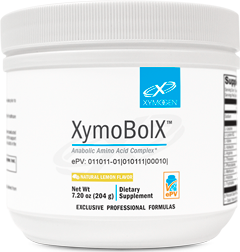
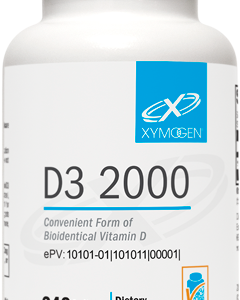
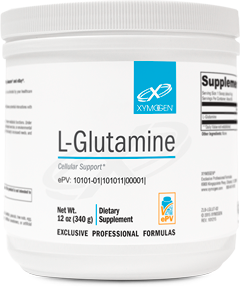
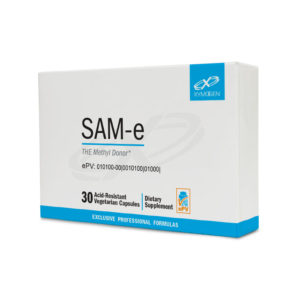
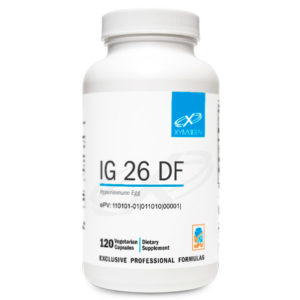
Reviews
There are no reviews yet.